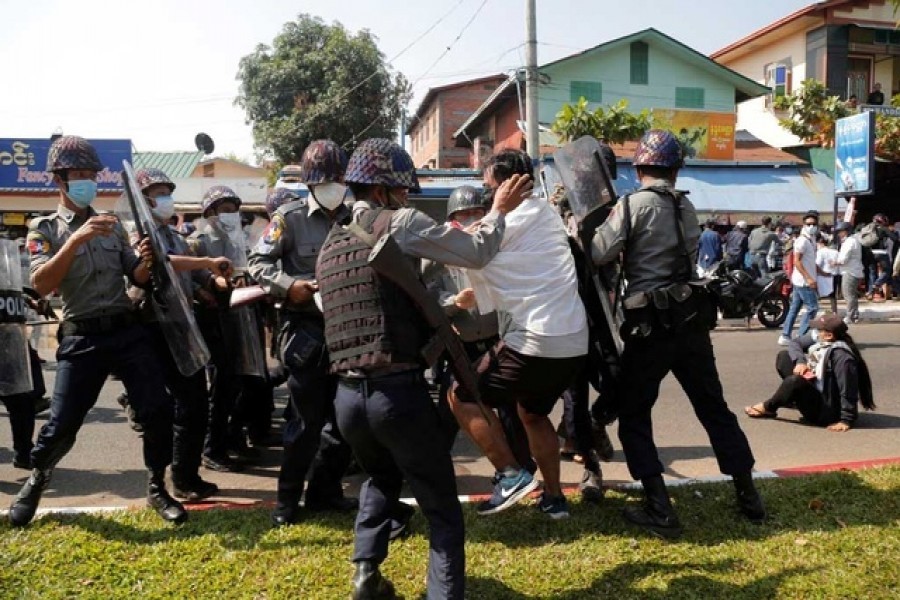Myanmar police fired on protesters on Sunday in the bloodiest day of weeks of demonstrations against a military coup and at least seven people were killed and several wounded, political and medical sources and media said.
Myanmar has been in chaos since the army seized power and detained elected government leader Aung San Suu Kyi and much of her party leadership on February 1, alleging fraud in a November election her party won in a landslide.
The coup, which brought a halt to tentative steps towards democracy after nearly 50 years of military rule, has drawn hundreds of thousands onto the streets and the condemnation of Western countries.
“Myanmar is like a battlefield,” the Buddhist-majority nation’s first Catholic cardinal, Charles Maung Bo, said on Twitter.
Police were out in force early and opened fire in different parts of the biggest city of Yangon after stun grenades, tear gas and shots in the air failed to break up crowds. Soldiers also reinforced police.
Several wounded people were hauled away by fellow protesters, leaving bloody smears on pavements, media images showed. One man died after being brought to a hospital with a bullet in the chest, said a doctor who asked not to be identified.
A woman died of a suspected heart attack after police swooped to break up a Yangon teachers’ protest with stun grenades, her daughter and a colleague said.
Police also opened fire in Dawei in the south, killing three and wounding several, politician Kyaw Min Htike told Reuters from the town.
The Myanmar Now media outlet reported two people had been killed in a protest in the second city of Mandalay.
Police and the spokesman for the ruling military council did not respond to phone calls seeking comment.
Police broke up protests in other towns, including Lashio in the northeast and Myeik in the deep south, residents and media said.
‘NEVER KNEEL’
Junta leader General Min Aung Hlaing said last week authorities were using minimal force to deal with the protests.
Nevertheless, at least 10 protesters have now died in the turmoil. The army said a policeman has been killed.
The crackdown would appear to indicate determination by the military to impose its authority in the face of widespread defiance, not just on the streets but more broadly in the civil service, municipal administration, the judiciary, the education and health sectors and the media.
“The Myanmar security forces’ clear escalation in use of lethal force in multiple towns and cities ... is outrageous and unacceptable,” Phil Robertson, deputy Asia director of New York-based Human Rights Watch, said in a statement.
Hundreds of protesters refused to leave the streets by early afternoon in Yangon. Many set up barricades while others chanted slogans and sang protest songs.
“If they attack us, we’ll defend. We’ll never kneel down to the military boots,” said Nyan Win Shein from one Yangon protest.
Early in the day, police swooped to disperse a teachers’ protest with stun grenades, sending the crowd fleeing. One teacher, Tin New Yee, died of a suspected heart attack, her daughter and a fellow teacher said.


